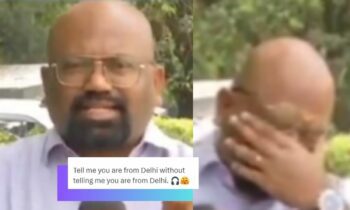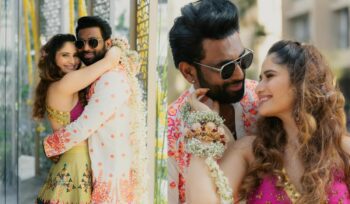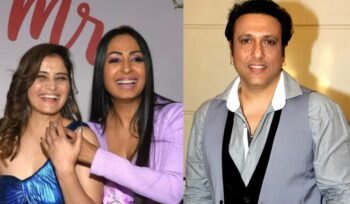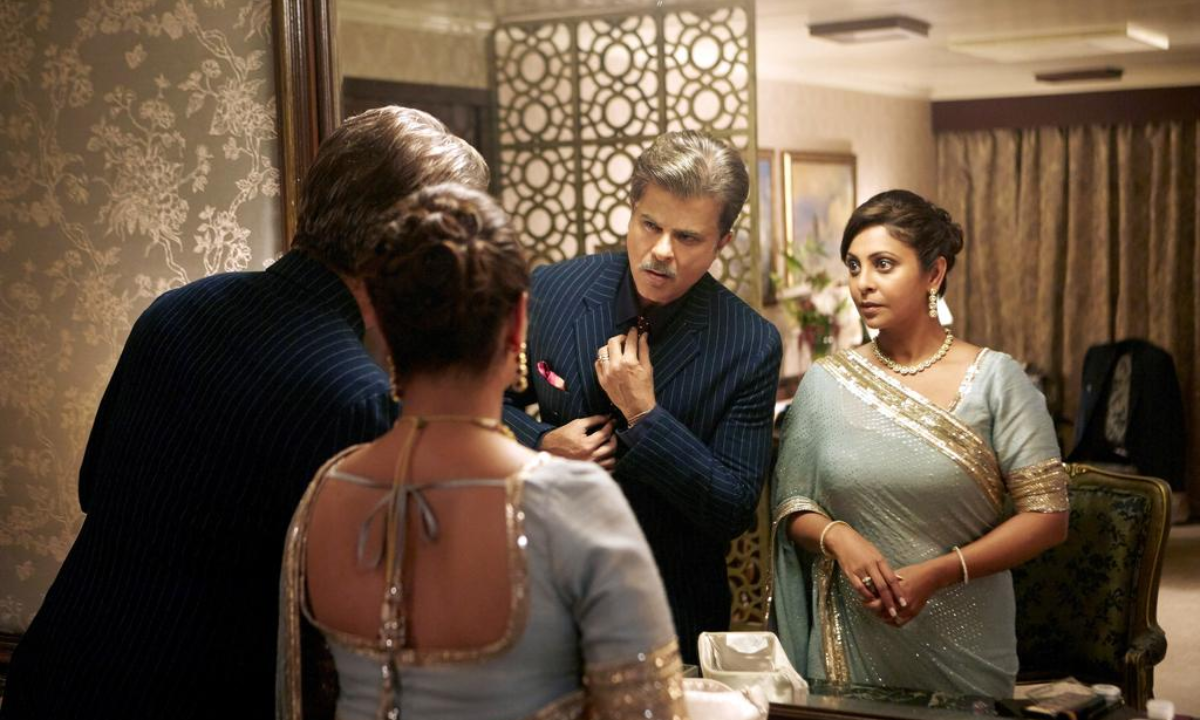Inside Haryana’s Bride-Buying Culture: A Cow Will Cost You More Than A Woman
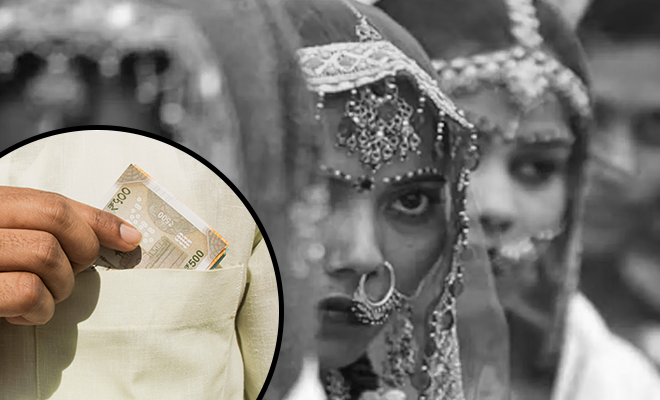
Time has done nothing for women. While we sit in our comfortable seats looking up the price of the latest iPhone, and for less than half of that amount, a woman is being sold in another part of our country. Haryana has a deep infestation of a bride buying culture which is often seen as morally fair in the state. Why? Because they are buying women out of necessity and not to put them into sex work but as wives.
It’s funny because the men there act like victims after indulging in infanticide and systematically fucking up the sex ratio. They protest, asking for brides because life must has been so unfair to them that they didn’t let so many girls be born and live. And then they go on to make women commodities valued at a price lesser than a cow. These women are called “Paro” and “mol ki bahuein” by people and anyone with a vagina will do.
“The existence of these women has been reduced to slogans such as ‘Bahu Dilao, Vote Pao (get us a bride, get votes)’ in election campaigns and cheap local songs. However, these women have their own stories to tell, which have been unheard for several years,” Jyoti Yadav wrote in ThePrint.
Mehbooba, 70, who was one such bride doesn’t even remember her maternal home. She hasn’t been there in 50 years. “To reach my village in Mumbai, you have to change many trains and buses and then travel a long distance on foot. Now, I do not remember the exact route. My parents may have died by now, I don’t remember them that well either,” she told ThePrint.
View this post on Instagram
She however, still remembers how her sale happened. “A truck driver from Mewat had come to my village. At the time, I was less than 20 years old. That driver selected me as a ‘suitable bride’ for my husband and after that I could never return to my maternal home,” Mehbooba recollected.
So where do these brides come from? There is an inter-state network that facilitates such sales as woman are brought in from Bengal, Bihar, Assam and Jharkhand. Apparently, every village has at least a dozen such brides and larger villages have over 200!
And while they’d have you believe it is all for a good cause (which we don’t buy into) most of the time, these women are part of a human trafficking scam. Even after being wedded, they are treated like commodities and legal slaves, where they are used for sex and field work.
Activist Jagmati Sangwan told ThePrint, “This is not a new trend. It has been going on for the last five decades but the sex ratio in Haryana has worsened in the last 30 years and this has led to an increase in this practice. Even if we somehow manage to improve the ratio, its outcome will only be visible in the next 20 years. Till that time, this practice will continue.”
“The Haryana government and women’s commission should spread greater awareness at the anganwadi level so that assistance can be provided to these daughters-in-law who are pushed into forced labour in fields and also face domestic violence in their homes,” added Sangwan.
Money can’t buy you love and happiness but it can certainly buy you a wife at throwaway prices. Boys who are often at the bottom of the marriage market find it difficult to score themselves a bride. So they spend a small amount and travel to a neighbouring state bringing home a body attached to a vagina. They need sex, someone to manage the house and work in the fields and raise their children.
View this post on Instagram
On the other hand, the women and their families are in desperate need too. These are women from lower castes and poor families. Their parents can’t afford to find them a groom because how will they pay for dowry when they are even struggling with daily meals? And of course, a woman’s parents have to pay the groom to treat her like a slave. Wow. Bride buying is a situation that works out then.
So they go for this option – a man no woman is willing to marry comes at the door of an impoverished family, takes away the “burden” of the house and gives them money. A win-win? Except the woman is left to live a life of objectification and slavery while the sickening patriarchy continues to deepen. People are pretty dismissive of the fact that these women must have basic human rights.
Sushila, one such bride said, “I did not know that this is my husband’s second marriage. I was told that I won’t have to work anymore. But now I have to do all kinds of work, from ferrying bricks from kilns to raising the mules. On several occasions, I dozed off while working and the bricks fell on my feet. My hands were also wounded.” However, she is glad that unlike other such brides, she is allowed to visit her home.
Khusboo, who was brought from Bihar’s Sasaram, said, “My husband had no son from his first marriage. So I was brought to Mewat. Now, I work in the fields.”
“In cases of domestic violence these women find themselves completely alone. There is no way for them to go to police, nor can they return to their maternal homes,” said Paro Mishra, assistant professor of social sciences at the Indraprastha Institute of Information Technology in Delhi.
Funny thing – all that nonsense about inter-caste marriages and honour killings that has been happening in the name of pride doesn’t apply here. Suddenly, their mindset becomes liberal as per their convenience. Haryana’s khap panchayats known to fight against inter-caste marriages have no issues with this. Sathbir Pahalwan, chief of Jind’s Barsaula khap, said, “Khap is not against girls being brought from other states. Those who are brought to our house become one of us. If someone comes to a Jat household, then she becomes a Jatni. Similarly, if someone is brought to the house of a Harijan, then she becomes one of the Harijans. We have an issue with weddings within the same gotra.” Suddenly, it’s all about “deeds” and not caste or gene pool. Sanjay, a villager from the Jind district, said “a human being is ultimately identified by his karma (deed)” And is this sale of a woman counted as good karma? Bride buying apparently is completely above this sort of moral complications.
ALSO READ:AI Uses Tags Like ‘Official’ To Describe Men, Whereas Women Are Being Recognised For Their ‘Skin’ And ‘Smile’. What Even?
It’s pathetic but not surprising that this desperation and violation of women has found a way into politics. In fact, bride buying makes for a vote bank. “Bahu dilao, vote pao” is a phrase you will hear men chanting during election campaigns. “During the 2014 Lok Sabha elections, unmarried boys from Jind district formed a ‘Randa’ Union or ‘Union of Bachelor Boys’, whose slogan was “Bahu dilao, vote pao (get us a bride, get votes)”. Several local leaders, during election campaigns, promise to bring in more such brides. In August 2019, Haryana Chief Minister Manohar Lal Khattar stoked a controversy for a remark stating that people were saying they will bring girls from Kashmir as brides after Article 370 was revoked in Jammu and Kashmir,” Jyoti Yadav wrote in ThePrint.
“The government should try to make marriage registration mandatory so that these women get a dignified life. We had even raised this issue during the Lok Sabha elections. The Congress had added it to its manifesto. The girls who are brought to Haryana are mostly illiterate or semi-literate girls of an early age. None of them has a marriage certificate, nor do they have any information about local police stations or their own rights,” Jaglan said. I mean, if Haryana’s bride-buying culture is not going to be eradicated so soon, at least make lives easier for these women!





